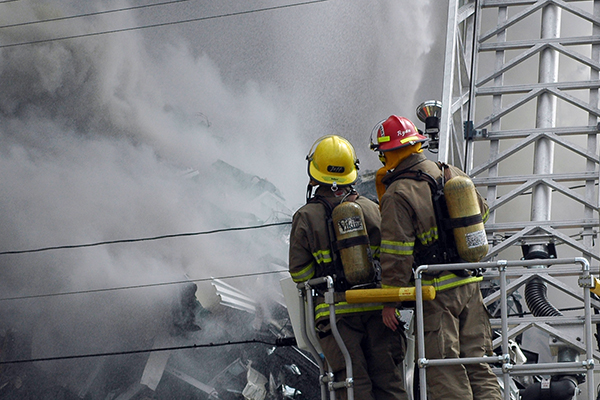Home »

B.C. expanding cancer coverage for firefighters
B.C. firefighters will soon have easier access to workers’ compensation benefits and support services in recognition of their higher risk of developing work-related cancers.
The provincial government announced today it is amending the Firefighters’ Occupational Disease Regulation under the Workers Compensation Act (WCA) by adding three cancers to the existing list of 13 that firefighters are at risk of developing.
If a firefighter develops one of the listed cancers after a certain period of employment, it is presumed that the cancer arose from their employment. The firefighter is then eligible for workers’ compensation benefits without having to prove the cancer is work-related, a Ministry of Labour media release outlined.
As part of the change, ovarian, cervical and penile cancers are being added to the list of work-related cancers. In addition, firefighters won’t have to work as long before they become eligible for coverage for testicular, colorectal and esophageal cancers, which are already covered.
“It goes without saying that firefighters face a lot of hazards in their work,” said Harry Bains, Minister of Labour. “When it comes to the workers’ compensation system, they shouldn’t have to prove that certain long-term illnesses are work-related in order to access supports. B.C.’s firefighters have been asking for this protection, and I am proud to support these people who do so much to keep British Columbians safe.”
These improvements support government’s priority to ensure workers who become ill or injured on the job face fewer barriers to accessing workers’ compensation benefits and resources. Women are increasingly joining the ranks of firefighters, including many volunteer personnel in Indigenous communities. While all firefighters can be exposed to the same hazards, the amendments also add gender-specific cancers to the list of those covered.
“We are extremely thankful for the expansion of the presumptive list of occupational diseases recognized in the legislation, along with the reduction in cumulative latency periods for other existing cancers. Our female firefighters who are on the front lines must be recognized, and we stand with them in our advocacy for health, safety and support for all members,” stated Gord Ditchburn, BC Professional Fire Fighters’ Association president.
Anthony Moore, president of the First Nations Emergency Services Society added, “These changes will benefit all fire departments and personnel, particularly volunteer fire departments and those with minimal resources, including the many strong female First Nations firefighters who serve their communities. I believe this is going to go a long way to assist many people in the firefighting profession.”
In 2005, the province first recognized certain cancers as occupational diseases associated with long-term employment as a firefighter. With these changes to the WCA, 16 cancers are now presumed to be associated with the profession.
To access certain workers’ compensation benefits related to occupation disease, a firefighter must have worked a minimum amount of time. Both professional firefighters and approximately 10,000 volunteer firefighters in B.C. have access to workers’ compensation related to cancer and other occupational diseases.
e-KNOW file photo
e-KNOW







